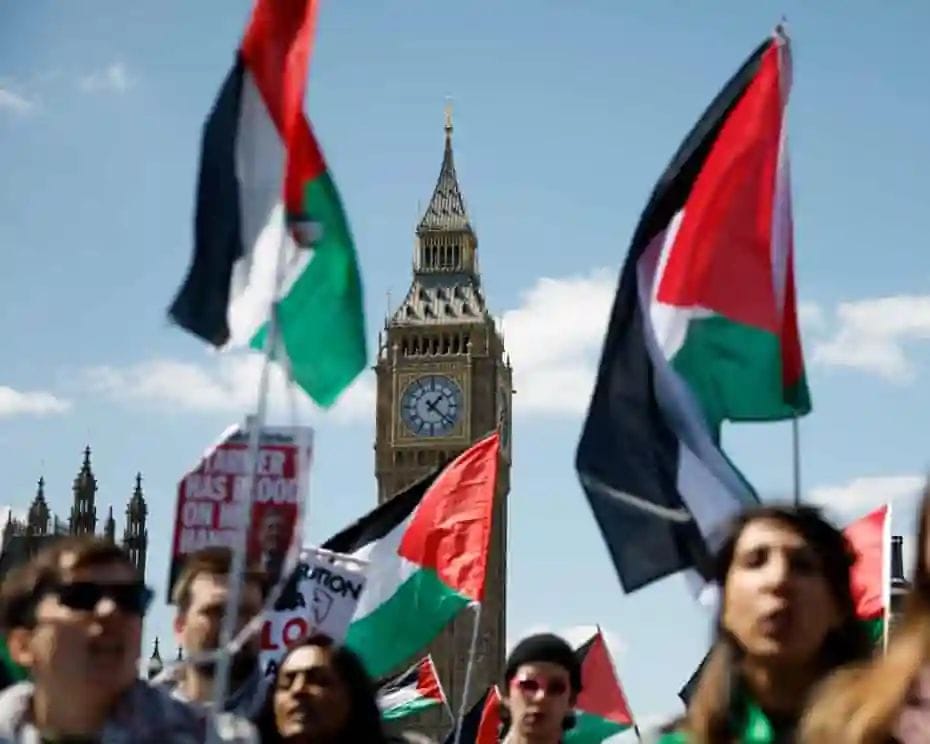The recognition of Palestinian state is rapidly becoming one of the most divisive international issues of the moment. With the United Kingdom signalling its readiness to recognise Palestine at the United Nations General Assembly, the United States has stepped in, urging Britain and other allies to reconsider.
Washington’s position is clear: any unilateral recognition risks destabilising the fragile balance of Middle East diplomacy.
The US Position
American leaders from both chambers of Congress have issued strong warnings against proceeding with recognition.
A joint letter from Republican figures such as Representative Elise Stefanik and Senator Rick Scott argues that moving forward with the recognition of Palestinian state now would “reward terrorism” and embolden Hamas.
The letter stresses three major concerns:
- Security for Israel: US lawmakers argue that recognition without ironclad guarantees for Israel’s security risks inflaming regional instability.
- Undermining negotiations: The US has consistently backed direct talks as the only viable path to a two-state solution. Unilateral recognition, they say, bypasses the bargaining table.
- Empowering Hamas: With hostages still held in Gaza and ongoing fighting, Washington fears recognition would hand Hamas political leverage at a critical moment.
The UK’s calculated move
Despite Washington’s disapproval, the UK under Prime Minister Sir Keir Starmer has hinted that recognition could come as early as the UN General Assembly session.
Starmer has previously tied the decision to Israel taking “substantive steps” toward peace, including:
- Ceasefire commitments,
- Preventing annexation of West Bank territories,
- Allowing humanitarian access into Gaza,
- Ensuring Hamas has no role in future Palestinian governance.
If these conditions are unmet, London appears prepared to follow through with its pledge.
Why allies are considering recognition
For London, Paris, Ottawa, and Canberra, the recognition of Palestinian state is increasingly framed as a moral necessity. Proponents argue that:
The humanitarian crisis in Gaza has reached breaking point, with widespread famine reports and relentless military operations. Recognition, they claim, is a signal of solidarity with Palestinians.
Stalled peace talks over decades have left no realistic prospect for progress unless external actors apply pressure. Recognition, then, is positioned as a catalyst rather than a conclusion.
International credibility is at stake. Supporters argue that if the world genuinely endorses a two-state solution, then recognising Palestinian statehood should not be perpetually postponed.
The risks outlined by Washington
Still, Washington’s perspective highlights significant risks. Recognising Palestine without preconditions could:
- Trigger Israeli backlash, worsening already tense relations between Jerusalem and London.
- Complicate hostage negotiations, reducing pressure on Hamas to compromise.
- Dilute the credibility of the two-state solution, which relies on negotiations rather than unilateral moves.
American leaders see this not as a symbolic gesture, but as a high-stakes shift with potential consequences for security in the wider Middle East.

International divides
The debate over recognition of Palestinian state underscores a growing divide between the US and its closest allies.
France, Canada, and Australia are all signalling readiness to join the UK in moving forward, while Washington insists that conditions are not yet right.
This divergence could reshape not only Middle East diplomacy but also the unity of Western alliances.
If Britain and its partners go ahead despite US objections, it may mark a turning point in how Europe and the Commonwealth nations assert independence from Washington’s long-standing Middle East policy.
Domestic reactions in the UK
Inside Britain, the debate is equally contentious. Supporters of recognition, including human rights groups and some MPs, frame it as overdue recognition of Palestinian aspirations.
Opponents, including Conservative critics and families of Israeli hostages, argue it is premature and dangerous.
For Starmer’s government, the decision could become a defining foreign policy test—balancing international credibility, domestic expectations, and allied pressure.
What Comes Next
As the UN General Assembly approaches, the stage is set for a dramatic moment. Three scenarios are possible:
- Immediate recognition: The UK, France, Canada, and Australia proceed, creating momentum for global recognition of Palestine despite US objections.
- Conditional recognition: London delays but sets a firm deadline, leaving space for Israel to make concessions.
- Diplomatic compromise: The UK seeks middle ground, coordinating with Washington on a slower timeline tied directly to hostage release and ceasefire talks.
The recognition of Palestinian state is no longer an abstract debate—it is a pressing diplomatic decision with real-world implications.
For its supporters, recognition represents justice long denied and a step toward reviving the two-state solution. For its critics, it is reckless, premature, and a direct threat to Israel’s security.
As London prepares for a defining vote at the UN, world is watching whether the UK and its allies will stand firm against US pressure—or yield to Washington’s call for restraint.
Either way, the decision will shape the next chapter of Middle East diplomacy.
More news at Swiftreportnow

